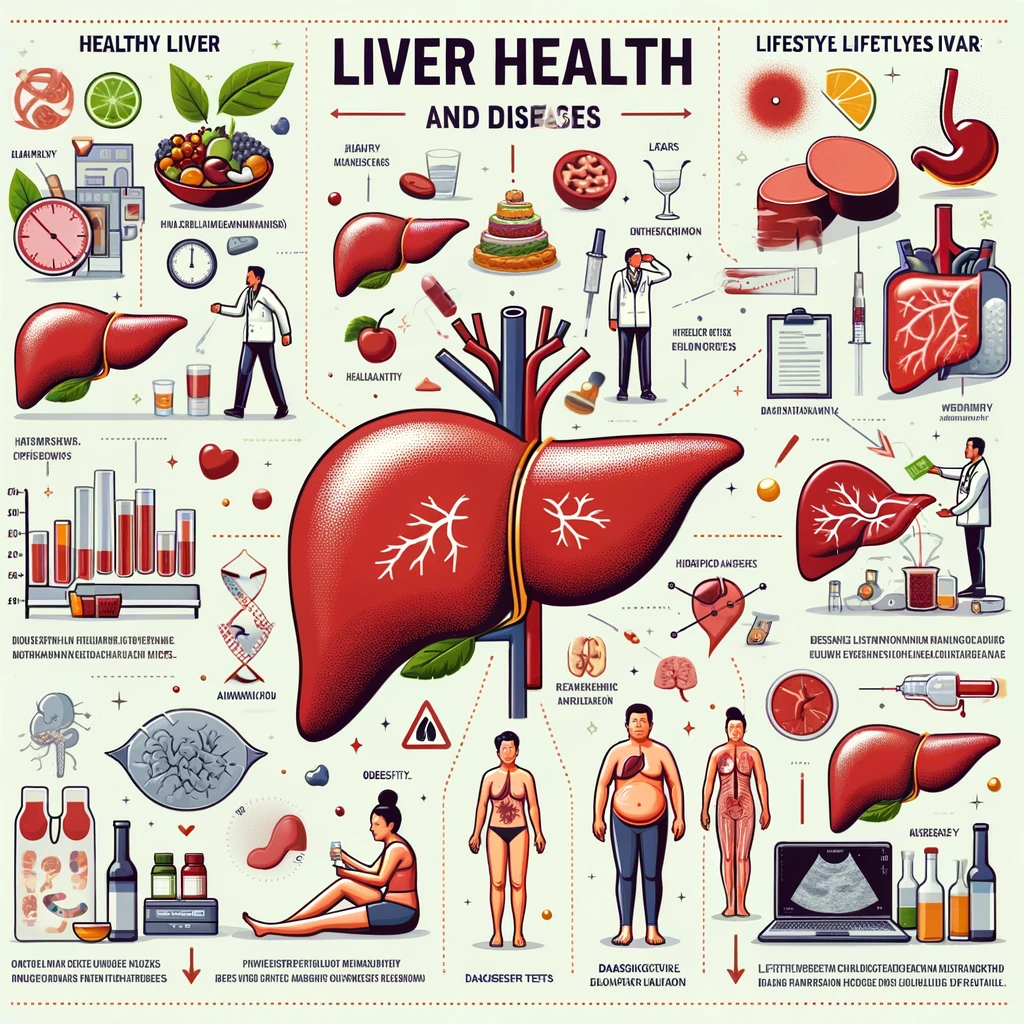The liver, a vital organ responsible for numerous essential functions, plays a crucial role in maintaining overall health. From filtering toxins and aiding in digestion to supporting the immune system, its importance cannot be overstated.
Neglecting the health of the liver can have severe consequences, as liver diseases often go unnoticed until they reach advanced stages and require immediate medical attention. Detecting liver diseases early is vital, as they may initially present with minimal or no symptoms. However, symptoms such as fatigue, jaundice, and dark urine should not be ignored.
Regular blood tests and diagnostic methods like ultrasounds and MRIs can help detect liver abnormalities. Furthermore, obesity is a significant risk factor for various liver diseases, including Non-Alcoholic Fatty Liver Disease and cirrhosis.
Adopting a healthier lifestyle, including regular physical activity and a balanced diet, can significantly reduce the risk of liver diseases.
Importance of Liver Health
The liver is a single, yet multifunctional organ essential for maintaining overall health. It performs various vital functions such as filtering toxins from the blood, aiding in digestion and metabolism, and supporting the immune system.
Neglecting liver health can have severe consequences, as liver diseases often go unnoticed until they reach an advanced stage. One such concern is Viral Hepatitis, an inflammation of the liver caused by various viruses, which is a global health issue. Additionally, Fatty Liver Disease, categorized into alcoholic and non-alcoholic types, is increasingly prevalent in industrialized nations.
Early detection of liver diseases is crucial for effective management, as symptoms may not be evident in the early stages. Diagnostic methods such as blood tests, ultrasounds, and MRIs can detect liver abnormalities.
It is important to prioritize liver health by adopting a balanced diet, regular exercise, and avoiding excessive alcohol consumption.
Silent Symptoms of Liver Diseases
Undetected until they progress to advanced stages, liver diseases can silently manifest with subtle symptoms that warrant immediate medical attention. Unlike other organs, the liver does not have nerve endings that transmit pain signals, making it difficult to detect early signs of liver diseases.
However, there are some subtle symptoms that can serve as red flags. These include unexplained weight loss, fatigue, loss of appetite, and nausea. Additionally, yellowing of the skin and eyes (jaundice), dark-colored urine, and pale-colored stools can indicate liver dysfunction.
It is important to note that these symptoms can be attributed to various other conditions as well. Therefore, if any of these symptoms persist or worsen, it is crucial to consult a healthcare professional for a proper diagnosis and timely treatment.
Link Between Obesity and Liver Diseases
Associated with a higher risk of liver diseases, obesity poses a significant health concern. Obesity is a condition characterized by excessive body fat accumulation, often resulting from an imbalance between calorie intake and energy expenditure.
The link between obesity and liver diseases, particularly Non-Alcoholic Fatty Liver Disease (NAFLD), is well-established. NAFLD is the most common liver disorder in developed countries, and obesity is a major risk factor for its development. Excess fat in the body, especially in the abdominal area, increases the likelihood of fat accumulation in the liver, leading to inflammation and liver damage.
Furthermore, obesity can also contribute to the progression of liver diseases, such as fibrosis and cirrhosis. Therefore, addressing obesity through lifestyle modifications, including a healthy diet and regular exercise, is crucial in preventing and managing liver diseases.
Effective Treatment and Prevention
Addressing the correlation between obesity and liver diseases, effective treatment and prevention strategies are essential for preserving liver health.
Timely diagnosis of liver diseases can prevent severe complications. The treatment approach varies depending on the stage and type of the disease. Lifestyle modifications, medication, and in some cases, liver transplantation are possible treatment options.
Preventing liver diseases involves adopting a healthier lifestyle, including a balanced diet, regular physical activity, and moderate alcohol consumption. For individuals with Alcoholic Fatty Liver Disease, reducing or eliminating alcohol intake is crucial. Non-Alcoholic Fatty Liver Disease, often associated with obesity and metabolic disorders, can be managed through weight loss, exercise, and dietary changes.
Regular monitoring and follow-up with healthcare professionals are necessary to ensure the effectiveness of treatment and prevention strategies.
Alcoholic Vs. Non-Alcoholic Fatty Liver Disease
To further explore the correlation between obesity and liver diseases, it is crucial to differentiate between Alcoholic and Non-Alcoholic Fatty Liver Disease.
-
Alcoholic Fatty Liver Disease is caused by excessive alcohol consumption. It results in fat accumulation in the liver, leading to inflammation and potential liver damage.
-
Non-Alcoholic Fatty Liver Disease, on the other hand, is often associated with obesity, metabolic disorders, and insulin resistance. It occurs when fat builds up in the liver without alcohol consumption.
-
Both types of Fatty Liver Disease can progress to more severe conditions, such as liver fibrosis and cirrhosis, if left untreated.
Understanding the differences between Alcoholic and Non-Alcoholic Fatty Liver Disease is crucial for proper diagnosis, treatment, and prevention strategies. It highlights the importance of addressing both alcohol consumption and obesity in maintaining liver health.

